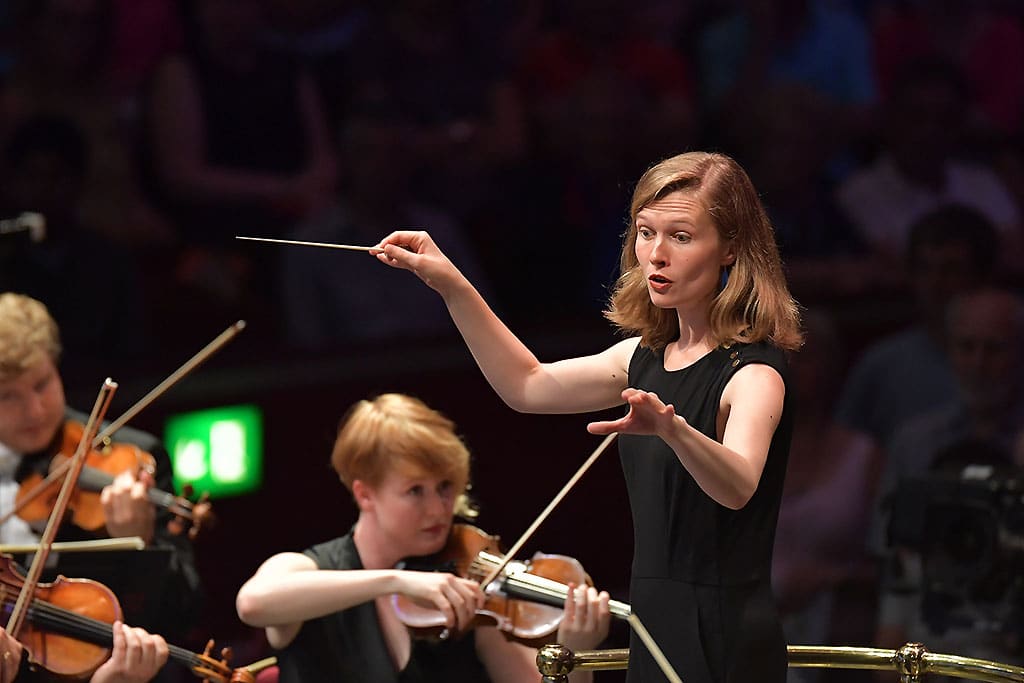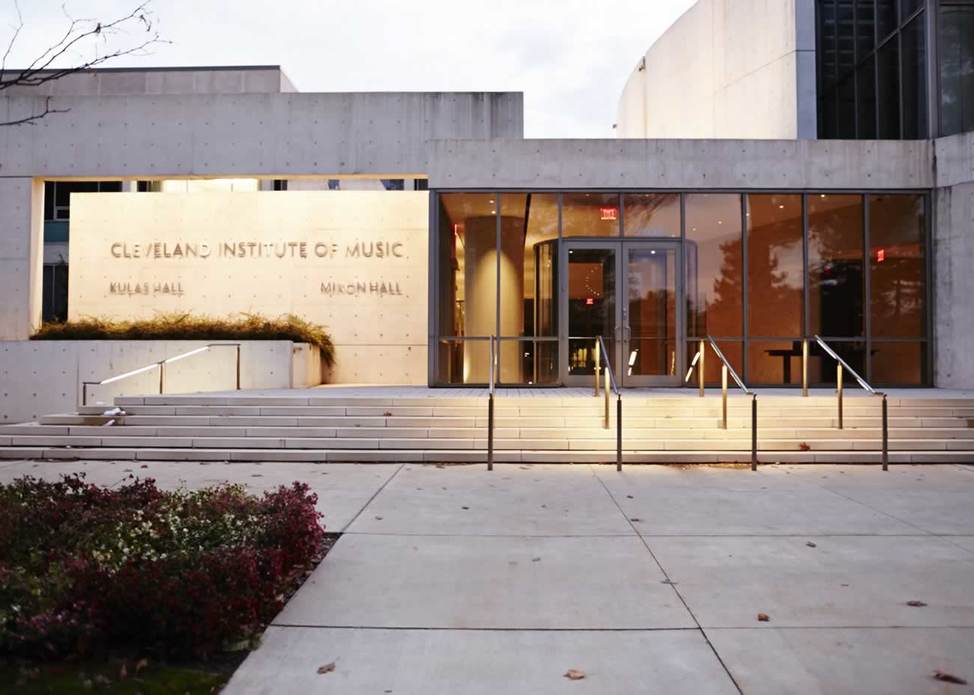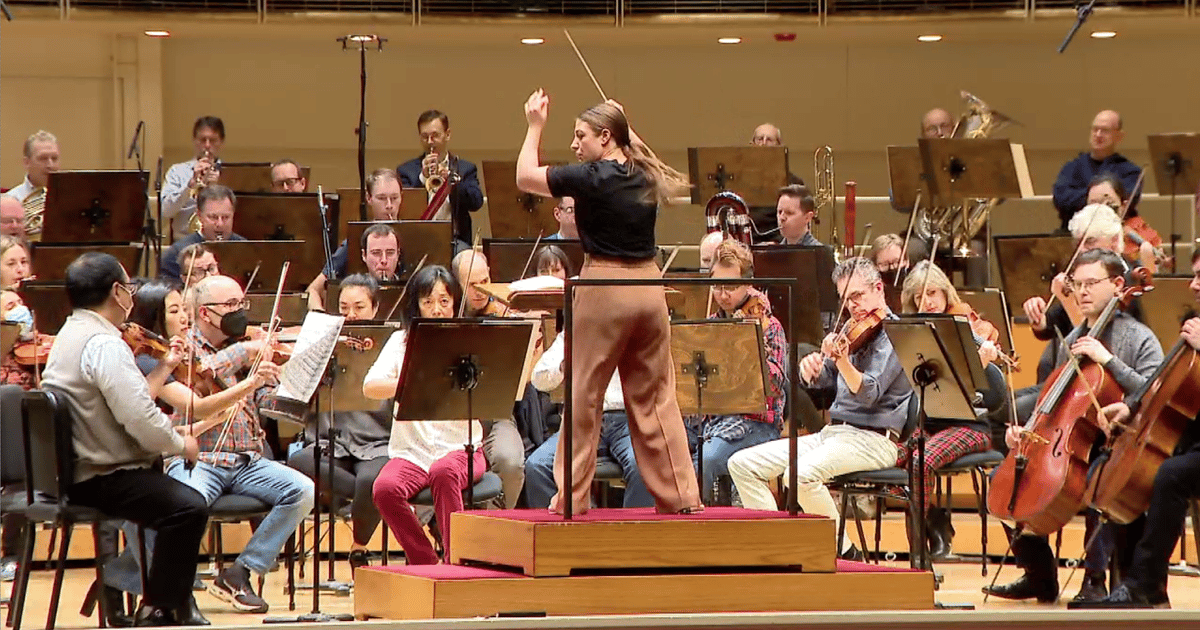Three soloists in Mahler’s Fourth?
mainThat’s what Mirga has ordered for tonight’s Birmingham performance.
Three boy trebles to sing the angelic song.
This must be a first… I can’t find any precedent, or any indication that this is what Mahler wanted.
Here are the details.
Boys aside, it’s an interesting programme.

So what was it like? Here’s a first review.





Bernstein took trebles I think.
One of them. And it wasn’t great because boy trebles nomatter how good have a hard time staying in tune. Lenny’s did anyway. It didn’t work. If Mahler had wanted one he’d have instructed one…….or three…………..
Poor Norman! It can’t be easy typing these Mirga posts with only one hand……..
+1
Didn’t Bernstein record it with a treble (Helmut Wittek)?
yes, just one…
Bernstein recorded it with one treble but performed it in the Concertgebouw in July 1987 with two (Helmut Wittek & Stefan Gienger).
That’s a pretty dirty post! I can’t believe you got it through! Brava
Other recording with boy (Max Emanuel Cencic): Anton Nanut with the RSO Ljubljana (I actually love this performance).
Interesting idea. Sort of a “chorus of angels” approach, plus more volume than just one treble.
Utterly ridiculous…! Do we really need to improve Mahler’s intentions?
Among so many composers he was too a genius conductor whose command of sonorities, colors and phrasing was unparalleled! I guess it is just more difficult to find a really suitable soprano than to be “original”! Poor Mahler…
It seems to be a safety measure: when one boy gets lost, the other two will cover it up.
All three boys were tremendous, with excellent German diction, and the balance was every bit as good from my seat as in many performances with a ‘childlike’ soprano. And the text is of course in the first person plural throughout (wir / uns)….
I was there, and the boys were fine. I suppose it meant they could save money on a soloist. The rest of it was ok, with Mirga not having much opportunity to leap around much. From where I was sitting in the chorus seats, I could see that quite a few of the orchestra kept their heads down most of the time.
I too was at the performance in Symphony Hall, but was less convinced by the decision to use three boys for the finale.
I respect Stephen (Maddock) for his views, as I do Wally Francis for his, but I felt the three boys never really ‘gelled’ together.
Perhaps I’m a bit biased by the youthful sopranos I have listened to over the years
What a lovely idea
The last movement of the 4th symphony is related thematically to the fifth movement of the 3rd, which does employ a children’s choir. Still, if Mahler had really wanted this in the 4th, he would have written it.
Well, the version by Bernstein hasn’t aged very well and the very reason was that treeble. But that doesn’t mean it can’t be made in principle, I remember there is at least one other recording with a treeble voice and it was better. Can anyone point me to it?
Brava to Mirga. There is absolutely nothing wrong with hearing a work somewhat differently. She has proven herself to be a serious artist of considerable substance and a chance to hear a familiar Mahler work in a slightly different way lets us hear it in a different way. The ‘museum’ approach to performing works as though there is only one way to hear them (“The Perfect Performance”) is typical of the Toscanini approach to music-making which in fact was never really that in the first place, It’s good to read a few commenters who understand that great art will always survive bad interpretations and quite often be enhanced by more interesting and valid ones.
The juvenile (Elizax about writing with one hand) and condescending (Borstlap) comments are sadly typical of some finger-wagging types who seem to be attracted to this blog. Classical music and its depth as an art form is so much bigger than they will ever be,
I’m sorry, you are mistaken. Mirga is young, good-looking, and female; therefore everything she does must be thoughtless, tasteless, and done for the sake of attention. End of conversation. Please make a note of it.
It was truly brilliant. To have the “child’s view of heaven” sung by a child’s voice, rather than by a mature woman trying to sound like a child, was masterly. The problem of balance was solved by having three boys, not just one. The individual qualities of the three voices were distinct and enriching, and it became clear that tthe youngest boy (Freddie) had a wonderfully expressive voice. At the end of each verse, the orchestra quietens and this boy was given the wistful falling phase without the other two voices. It was a moment of spine-tingling musical genius!
Thanks for the informative review.
Trebles all round!
Bernstein recorded it with one treble but performed it in the Concertgebouw in July 1987 with two (Helmut Wittek & Stefan Gienger).
Trebles all round – I’m curious if Private Eye will pick this up
This was a revelation, and I now don’t ever want to hear Mahler 4 with a soprano again. The boys voices blended into the orchestra so well it added, unbelievably, “weight” to the symphonic structure of the symphony. It’s always like a three movement symphony with a [very good] little song cycle tacked on at the end; performed this way the whole structure seems to be so much more logical and stronger.
Concert hardened old timers like me are being given regular doses of Mirga’s musical adrenaline which is both refreshing and exhilarating in equal measure.
Absolutely agree: I think we should start a campaign for CBSO to record this version ASAP while the biys’ voices retain their innocence, passion and pitch!
Only boys????? Gender discrimination! 😉
Mahler wrote that movement for a soprano, not for a boy. The music is stylized anyway, so the singer does not have to ‘imitate’ a boy’s ‘innocence’, that quality is already in the music.
There is really no excuse for changing the soloist role if it is not in the score.
Composers write scores with as much as possible instruction as to avoid confusion and misunderstanding. Performers willfully messing with the score is disrespectful and unprofessional, like cultivating as long hair as possible to be able to fly it around.
In fact Mahler didn’t write it specifically for a soprano: the score says only “singing line”, so it doesn’t need to be a woman. And the text is all written in the first person plural, which makes it very natural for three voices.
I’m sympathetic to Lennie’s/Mirga’s approach. Most sopranos sound far too ‘plummy’ in the role – failing to achieve the childlike expression asked for in the footnotes to the score:
http://archives.nyphil.org/index.php/artifact/4db98b9a-50e7-4b54-96f9-fe6b6ef7a82f-0.1/fullview#page/108/mode/2up
However, the frontispiece of the score itself does specify “sopran”:
http://archives.nyphil.org/index.php/artifact/4db98b9a-50e7-4b54-96f9-fe6b6ef7a82f-0.1/fullview#page/6/mode/2up